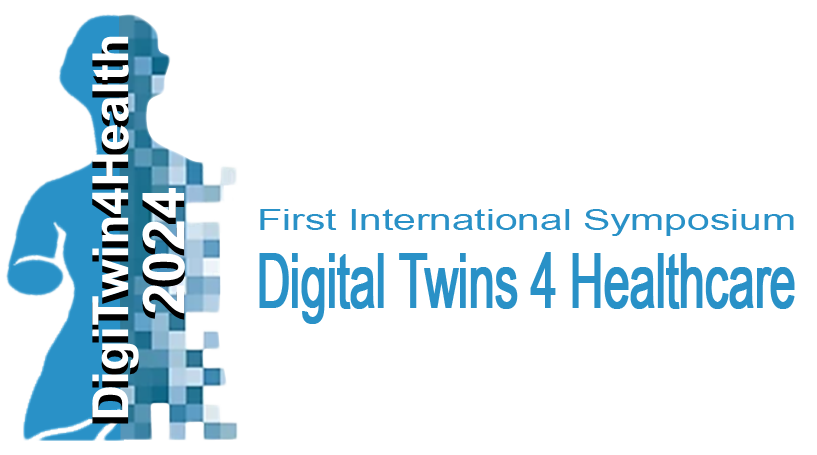Confirmed Plenary Speakers
Plenary Speakers
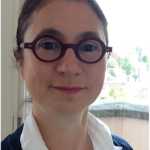
Anne Demoisy
Insight on the ethical considerations of Digital Twins: the OPTOMICS case.
Anne Demoisy is a senior Ethics expert, Director of Rhizome s.a. Ethics and Technology, Brussels; she is a member of Ethics Boards in more than 15 European research projects and an evaluator for the European Commission, ERC and EUROSTARS. She is an independent Ethics Advisor in HORIZON funded projects such as OPTOMICS, (coord. TUM, Munich, Germany) developing Digital Twin technology to improve type-2 diabetes healthcare.
Dimitrios I. Fotiadis
An AI-enhanced digital twin for the prediction of stroke and cerebrovascular events through computational modelling of carotid artery disease.
Dimitrios I. Fotiadis is a Greek biomedical engineer and professor at the University of Ioannina where he is the director of the Unit of Medical Technology and Intelligent Information Systems. He is an affiliated member of the Foundation for Research and Technology Hellas. His research interests include multiscale modelling of human tissues and organs, intelligent wearable/implantable devices for automated diagnosis, processing of big medical data, machine learning, sensor informatics, image informatics, and bioinformatics.

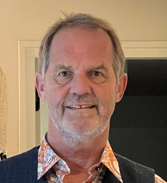
Albert van Den Berg
Electrical Methods for Microfluidics, Labs- and Organs on Chips.
Albert van den Berg is full professor on Labs- and Organs on Chips at the University of Twente. He received several awards (ERC, POC and EIC grants, Simon Stevin, Spinoza prize) and is member of the Royal Dutch Academy of Sciences (KNAW). From 2018-2024 he was (co)director of MESA+ institute for Nanotechnology and currently is quartermaster of the UT Climate Centre.
Martin Golebiewski
Standardization gaps for Virtual Human Twins.
Martin Golebiewski, a biochemist at HITS, focuses on data & model standards in life sciences. They lead data standardization efforts in German & European health data infrastructure projects, ensuring FAIR data & facilitating personalized medicine advancements.
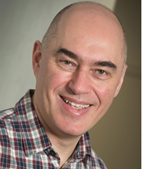
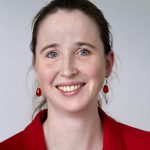
Liesbet Geris
From chips to tissues: combining in silico and in vitro tools in skeletal tissue engineering.
Prof. Liesbet Geris is professor Biomechanics and Computational Tissue Engineering at the University Liège and KU Leuven (BE). Her research focusses on developing enabling technologies (in silico & in vitro) for skeletal tissue engineering. She received several ERC grants (1 StG, 2 CoG) and research awards. Liesbet is the Virtual Physiological Human Institute’s executive director and coordinates the EDITH CSA.
Adrian Ionescu
Digital Twins in Healthcare: a look into the future.
Adrian M. Ionescu, a professor of EPFL and IEEE Fellow, leads ground-breaking research in nanoelectronics and Digital Twin technologies, focusing on energy-efficient and emerging devices for sensing and computation. His work bridging theory and application is shaping the future of semiconductor technology and has been recognized by the IEEE Technical Field Cledo Brunetti Award in 2024.

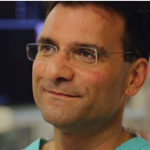
Anthony Mathur
A clinicians approach to the cardiovascular digital twin.
Prof. Anthony Mathur is a cardiologist who balances clinical work with research on biologics for heart disease. As the Clinical Director at Barts Health, he manages complex cases of heart failure and angina. He also chairs the ESC’s Stem Cell Task Force and led the UK’s Cardiac Stem Cells Collaborative. Additionally, he leads the CVDHub, which supports innovation in cardiovascular devices and facilitates trials for SMEs.
Vasilis Ntziachristos
Information Matters.
From electrical engineer to imaging pioneer, Prof. Ntziachristos’ journey spans the globe. A Ph.D. from UPenn landed him at Harvard & Mass General, followed by a professorship at the Technical University of Munich, where he chairs Biological Imaging and directs the Institute for Biological and Medical Imaging. He also heads bioengineering at both institutions and the Helmholtz Pioneer Campus, showcasing his commitment to innovation in healthcare technology.


Nelly Pitteloud
Continuous measures of cortisol in healthy individuals.
Prof. Nelly Pitteloud is a Professor of Medicine and Chief of Endocrinology at Lausanne University Hospital. After receiving her medical education at the University of Geneva Medical School, she trained and conducted research in endocrinology at Harvard Medical School and Massachusetts General Hospital. Her research focuses on the link between reproduction and metabolism. She founded the European Center for Reproductive Endocrinologys.
Petra Ritter
Personalized brain simulation.
Prof. Petra Ritter, a medical doctor specializing in brain research, completed extensive international training before becoming a Professor for Brain Simulation. Leveraging her expertise in neural oscillations and brain imaging, she now leads research efforts in developing personalized brain simulations for medical applications.


Eleftheria Zeggini
Translational genomics of complex disease.
Prof. Eleftheria Zeggini, FMedSci is the founding Director of the Institute of Translational Genomics at Helmholtz Munich and holds the TUM Liesel Beckmann Distinguished Professorship at the Technical University Munich School of Medicine. Her research leverages big biomedical data to translate insights from genomics into mechanisms of disease development and progression, shortening the path to translation and empowering precision medicine.
Raphaëlle Lesage
Computational modeling of physiology for therapeutics development: from the virtual second species to in silico human trial passing by digital OoC.
Engineer and Systems Pharmacologist at ESQlabs, Dr. Raphaëlle Lesage, specializes in physiology-based computational modeling for therapeutics (pre)clinical development. Formerly with the Virtual Physiological Human institute, she engaged in international consortia, advocating for digital twins in healthcare. She is particularly interested in enhancing bio-simulations with AI methods.
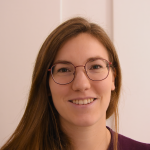

Koen Kas
Diving Deeper into the Future: Harnessing the Synergy of Digital Twins and Triplets.
Professor Koen Kas, a healthcare visionary, aims to make healthcare proactive and delightful. He’s a professor, entrepreneur, and author who uses digital tools and AI to predict and personalize health. His work extends beyond disease prevention, focusing on individual empowerment with control over personal data. Kas actively shapes the future of healthcare through research, innovation, and leadership positions.
Gökhan Ertaylan
From DNA to Digital Twins: Redefining Healthcare through Personal Genomics.
Gökhan Ertaylan is the Principal Investigator of Digital Precision Health Group at the Flemish Institute for Technological Research (VITO). His research focuses on innovating and deploying data-driven, explainable and ethical precision health ( Digital Twins) technologies in practice such as Personal Genome Vaults, Pharmacogenomics Passports and Individual Reference Intervals. He is coordinating and partnering in several European (REALM, EDITH, ONCOSCREEN, RAIDO), and National Projects.


Adrià Galan-Gadea
Digital twins for model-driven non-invasive brain stimulation in Alzheimer’s Disease.
Adrià graduated in Biomedical Engineering at the University of Barcelona and later a pursued a master´s degree in Brain and Cognition in Pompeu Fabra University and a Master´s degree in Neuroengineering at the Technical University of Munich. He started working in neuroscience in 2014 with small world networks, and since then he worked in different projects, including how different single neuron dynamics can emerge from different network models and Brain-Computer Interfaces. He joined Neuroelectrics in 2020 to model how electric fields affect different neuron types and now he is in charge of the development of the modeling tools of the Brain Modeling department.
Antonis C. Kakas
Explainable Digital Twins.
Antonis C. Kakas is a Professor at the Department of Computer Science of the University of Cyprus. His current interests include the development of a new framework of Cognitive Programming aiming to offer an environment for developing Human-centric AI systems for developers and human users at large. He is co-founder of Argument Theory, offering solutions to real-life application decision taking problems based on AI Argumentation Technology.


Igor Balaz
Micro-scale tumor digital twins – the role of tumor microenvironment and how to model it.
Igor Balaz’s primary academic interests combine AI and modeling and analyzing the adaptability of complex biological systems. With his extensive background in leading international projects, funded with over 7.6 million euros, he led the development of a tumor digital twin simulator and modular framework for designing and producing biohybrid machines.
Alexander Meyer
Challenges and opportunities for the deployment of Digital Twins in clinical settings.
Alexander Meyer is Charité Professor of Clinical Applications of AI and Data Science, Chief Medical Information Officer at the German Heart Center of Charité (DHZC), group leader at DHZC‘s Clinical Data Science Group and senior resident in cardiothoracic surgery at the Clinic for Cardiac, Thoracic and Vascular Surgery at the German Heart Center of Charité.

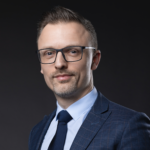
Wouter Van den Bosch
Driving the next generation of Digital Twins with wearable, ingestible and implantable sensors.
Wouter Van den Bosch is R&D Program Manager “AI & Health” at imec. Together with a highly motivated and capable team of data scientists, developers, domain experts and project leads, his team aims to push the boundaries of datascience and AI applied to imec’s technological roadmaps in the domains of Health and Life Sciences. Before taking up this role, Wouter was Program Manager Public Health at Imec, helping to accelerate digital transformation and access to health data at scale in the Belgian health ecosystem & explore how technology can be used to create new insights in personalised and predictive health pathways. Wouter is a seasoned technologist with a passion for innovation, disruption, collaboration and new technology applied well.
Costas Pitris
Cyber-Physical Twins for Predicted Patient Care Pathways: Hope or Hype?
Costas Pitris is a Professor at the KIOS Center of Excellence, University of Cyprus. Prof. Pitris has studied at the MIT (PhD 2000) and Harvard Medical School (MD 2002). His research interests include optical diagnostics, biomedical imaging, spectroscopy, signal/image analysis, and computational intelligence. He has coordinated research grants totaling over €8.5mil and participated in others worth over €2mil. He has published 57 peer reviewed journal publications, 146 conference proceedings, 5 book chapters, and 1 book. He also holds 12 US, European, and other patents. The citations to his work have reached > 15400 (h-index: 40) according to Google Scholar.

